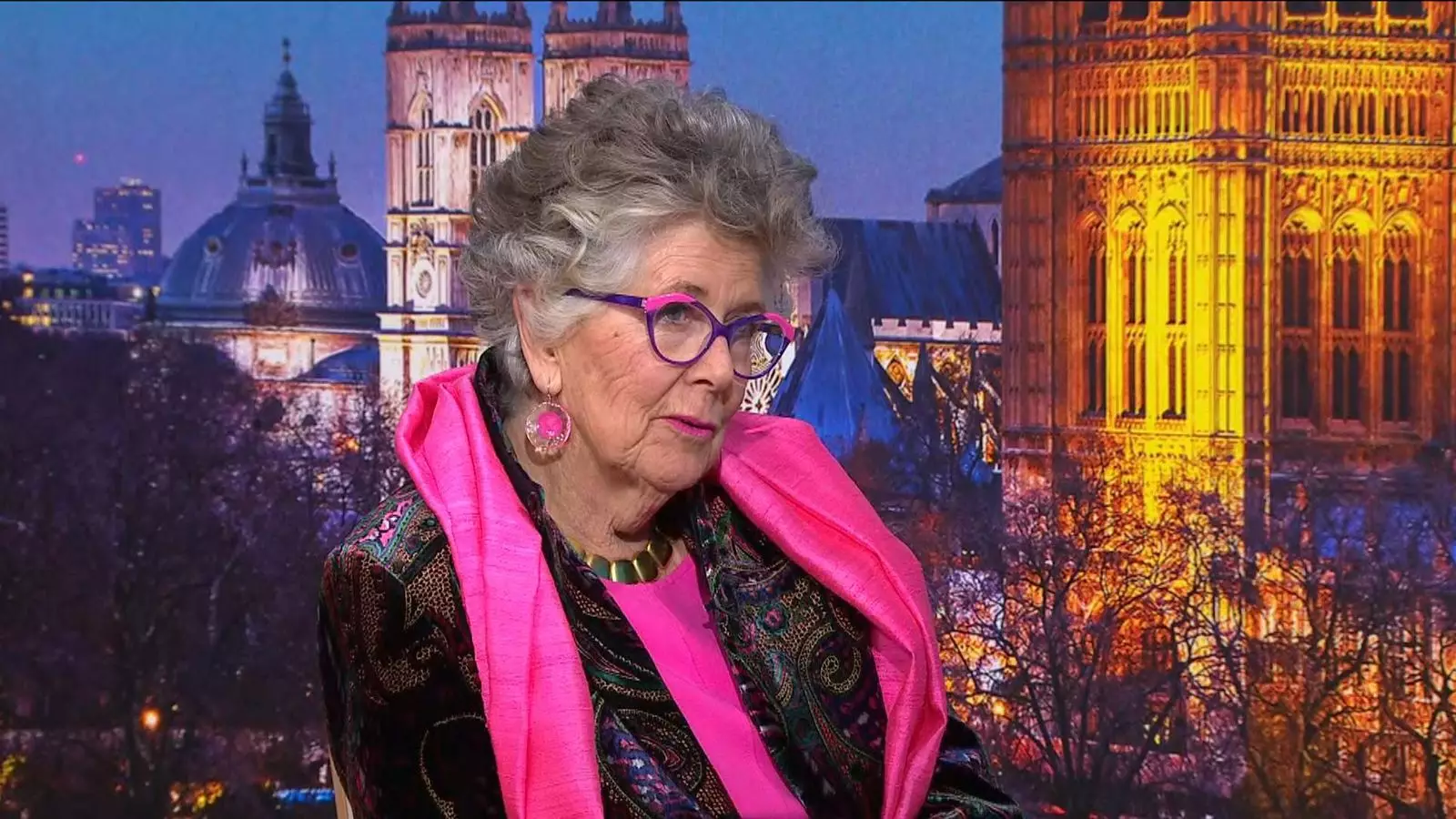Assisted dying is a contentious issue enveloped in moral, ethical, and emotional complexities. The debate has gained renewed impetus in the UK as lawmakers prepare to scrutinize the Terminally Ill Adults (End of Life) Bill. The imminent discussion in the Commons highlights the divide between proponents of assisted dying and those advocating for comprehensive palliative care as the only humane response to terminal illnesses. Dame Prue Leith, a prominent figure due to her role in The Great British Bake Off, has emerged as a vocal advocate for the proposed legislation, drawing from her personal experiences with the agonizing death of her brother. Her viewpoint draws attention to the pressing need for reform in the current legal framework surrounding end-of-life choices.
Dame Prue’s testimony is particularly poignant, as she recounts witnessing the slow and painful decline of her brother, David, due to bone cancer. Her reflections expose the heart-wrenching reality often relegated to the shadows of public awareness. Describing the emotional torment endured not only by the patient but also by their loved ones, Dame Prue peaks into a world that many would prefer to ignore. She vividly painted the depiction of a life marked by unimaginable suffering, raising a valid question: how can society condone such pain when there exists a potential path to alleviation?
This experience starkly contrasts with the position held by her son, Danny Kruger, who has articulated a viewpoint shaped by the belief that advancements in palliative care should render assisted dying unnecessary. This difference in perspective underscores the complexity of familial relationships when confronted with the specter of death and suffering.
As debates unfold regarding the legality and ethicality of assisted dying, it is essential to consider the legislative aspects of the proposed Terminally Ill Adults (End of Life) Bill. Should it pass, this bill would permit terminally ill adults the option to seek medical assistance in concluding their lives, marking a seismic shift in societal norms and legal parameters in England and Wales. Proponents, including Labour MP Kim Leadbeater, argue that the proposed bill embodies a framework rich with safeguards designed to protect vulnerable individuals from coercion or exploitation.
Critics, on the other hand, caution against what they perceive as a dangerous erosion of ethical boundaries, suggesting that it paves the way for a “slippery slope” towards more liberal applications of assisted dying — fears that have surfaced in other jurisdictions that have enacted similar laws. As discussions intensify in the Commons, the implications of this bill extend far beyond the individual; they challenge societal values about life, autonomy, and the obligations of medical professionals.
The clash between the positions held by Dame Prue Leith and her son presents a microcosm of the broader societal dilemmas we face regarding end-of-life care. On one hand, there is an urgent need to address the agonizing realities of terminally ill patients; on the other, there exists a moral imperative to ensure that vulnerable individuals are protected from potential abuse inherent in assisted dying laws.
As public and political discourse is reignited by personal testimonies such as those from Dame Prue, it becomes increasingly important for society to engage in constructive dialogues. Understanding differing perspectives can lead to a more nuanced approach to legislation that respects both the dignity of the dying and the ethical obligations of healthcare providers.
Ultimately, the conversation surrounding assisted dying must be rooted in compassion and a desire to alleviate suffering. It compels us to confront our deepest fears surrounding mortality and to rethink our responsibilities toward those who are in unbearable pain. As we await the outcome of the Commons vote, it is essential that the debate remain informed, empathic, and respectful, ensuring that the voices of those who have suffered are heard and integrated into the legal and ethical frameworks guiding healthcare in the UK. The path forward must honor the sanctity of life while also recognizing the overwhelming weight of suffering that too many endure.


Leave a Reply